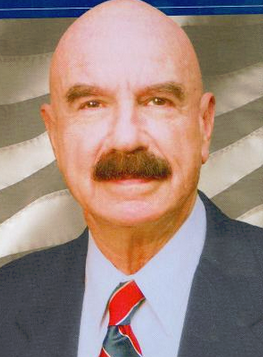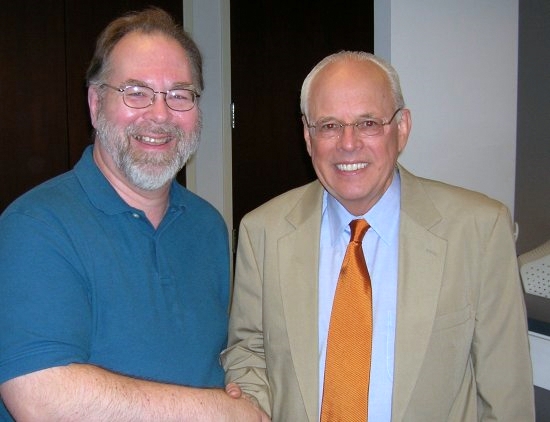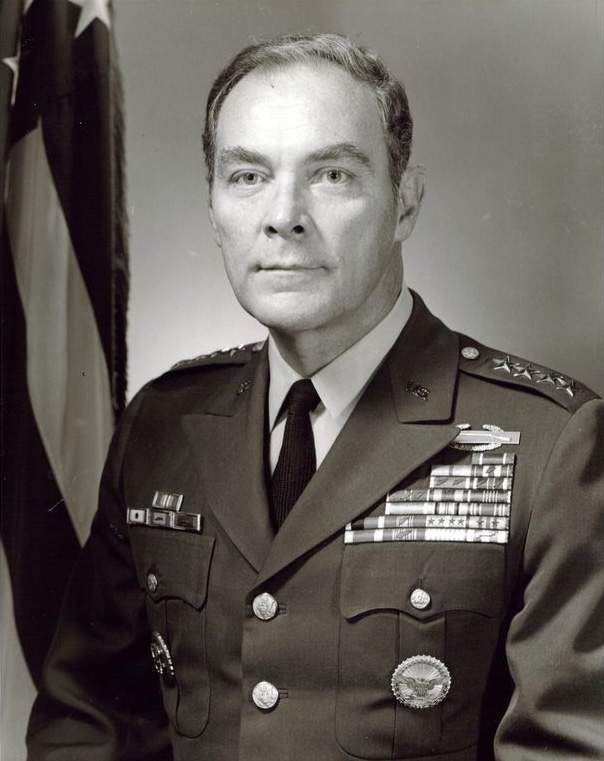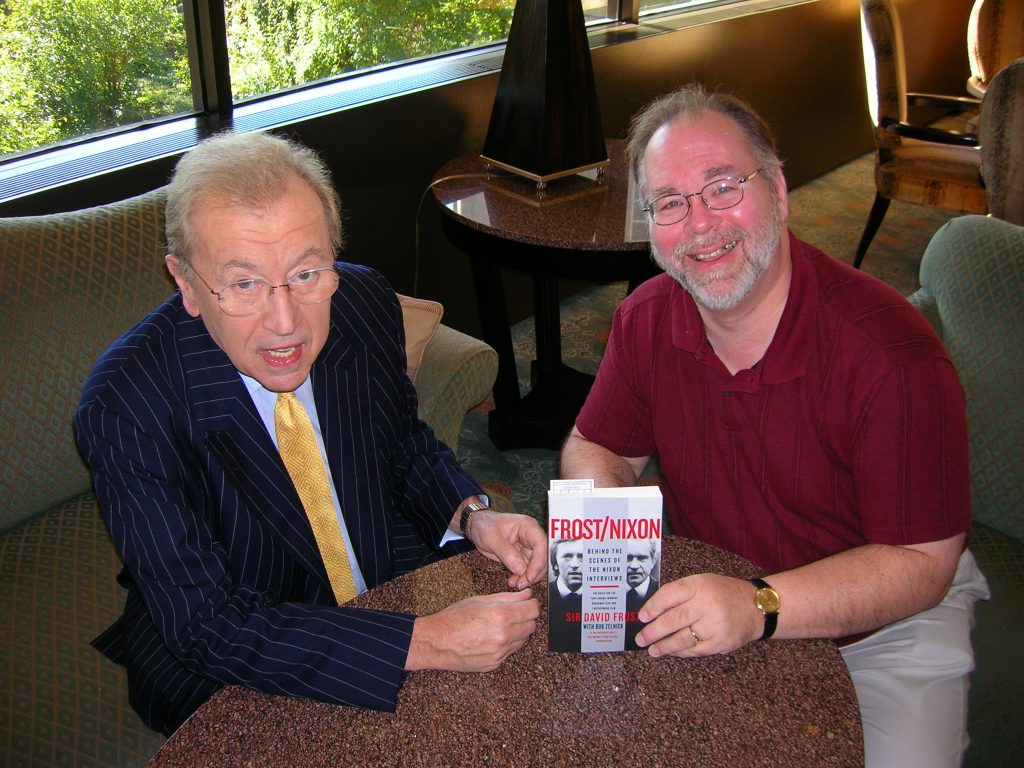
David Frost had a successful, decades long career as a television talk show host and interviewer, in both the UK and the US.
He interviewed thousands of VIPs, celebrities, and movers and shakers of all kinds.
But he may be best remembered for his 1977 series of interviews with former President Richard M. Nixon, who just three years earlier had resigned the presidency in disgrace after the Watergate scandal.
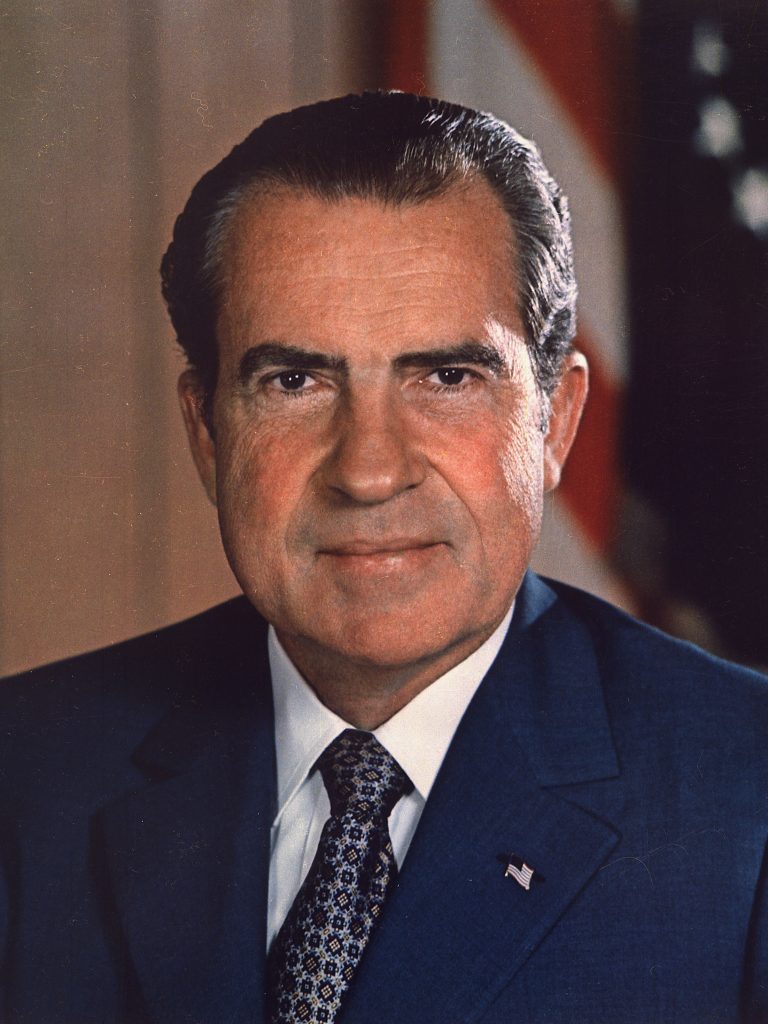
Frost paid Nixon some $600,000 for those interviews. But they paid off, big time, as they became a part of American television history, and helped restore some of Nixon’s credibility.
I met David Frost 30 years later, when he wrote a book called Frost/Nixon, a behind the scenes account of how the interviews came about, and what happened when the cameras stopped ruling.
So here now, from 2007, David Frost.
David Frost died in 2013. He was 74.
You may also like these episodes:
G. Gordon LiddyBen Bradlee
Buy Books / Media from Amazon

